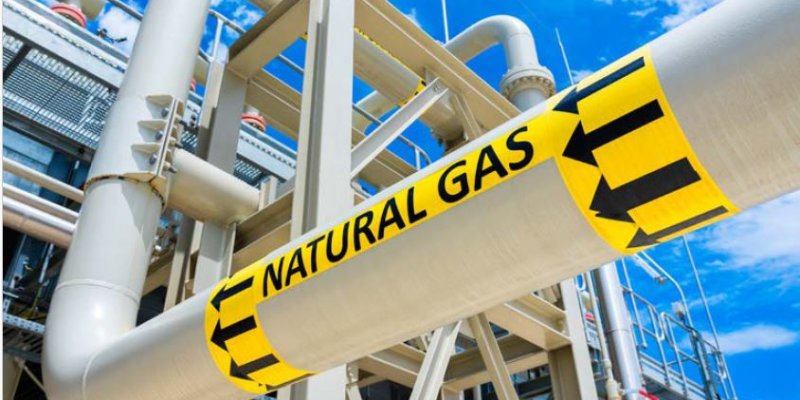

Topic of the month:
Adjustments of the German storage filling level requirements
Adjustments of the German storage filling level requirements
the new federal government has been in office since 6 May. The coalition parties had already announced their ministers in the days leading up to the election of the new chancellor. All of the personnel speculation that I reported on in the last edition turned out to be incorrect. Katherina Reiche, previously chairwoman of Westenergie, is the Federal Minister for Economic Affairs and Energy. At the end of March, someone who knows the CDU (Christian Democrats) very well said that Ms Reiche would become minister. At the time, I did not want to believe this, as I simply could not imagine Ms Reiche accepting a significant pay cut. Moreover, her career had taken her from politics to the business world. However, she is clearly a ‘political animal’. Most representatives of the energy industry were pleased with the appointment, hoping for a pragmatic continuation of the energy transition with greater technological diversity. Only time will tell if and how long the enthusiasm will last. Some people I spoke to wondered whether Ms Reiche and her new management team really have a plan and a general, holistic view on energy topics. One of the first things she said was not very promising: She boldly announced that the ban on operating old boilers would be lifted. This ban was introduced, with many exceptions, into the Building Energy Act under the Economics Minister, Peter Altmaier (CDU), in 2020. It generally affects gas and oil heating systems installed before 1 January 1991. In this issue, dear readers, you will of course find more information on Ms Reiche’s appointment, her start, and other personal details of the new federal government.
The many storage capacity sales in this edition are probably rather tedious. It's the chronologist's duty! You can find the reason for the, flood of sales procedures in this month's topic. The Ministry of Economic Affairs triggered the flood by introducing a new filling level regulation and relaxing filling targets. I have, of course, also written about why the regulation can be viewed very critically, and by the end of the month it had become clear that this was the case. In southern Germany, the ordinance and the Ministry of Economic Affairs' handling of it could trigger a veritable storage and supply crisis.

Topic of the month: Adjustments of the German storage filling level requirements
In the last issue (energate Gasmarkt 05/25), I reported on a possible initiative by the Federal Ministry of Economics and Climate Protection (BMWK) to adjust the German storage filling level requirements. BNetzA President Klaus Müller had hinted at such a plan at a conference in March.
1.1 The new filling level regulation
The previous government actually implemented this at the very last minute. On 28 April at 14:07 hours, the BMWK sent the draft of a regulation adjusting the filling level requirements for gas storage facilities (Gas Storage Filling Level Regulation – GasSpFüllStV) to the relevant associations for consultation. The deadline for comments expired on Tuesday at midday. The Federal Cabinet approved the regulation at its final meeting on Wednesday, 30 April. The regulation was published in the Federal Law Gazette on 5 May. It specifies differentiated filling levels.
• For most storage facilities, the target will fall from 90 to 80 per cent for 1 November.
• For the Bad Lauchstädt, Frankenthal, Hähnlein, Rehden, Stockstadt and Uelsen storage facilities, the target is to be reduced to 45 per cent.

Frequently asked questions
What is the energate Gasmarkt?
The energate Gasmarkt provides specialists and executives in the gas industry with up-to-date information and background information on the German and international gas market. The medium expertly explains the most important developments in the fields of market, law, politics and business. In addition, the energate Gasmarkt offers insider information such as market rumors and personal details.
What is the energate Jahresreport Gas?
The energate Jahresreport Gas traces the most important market developments of the year and provides a well-founded outlook for the coming months. Gas expert and insider Dr. Heiko Lohmann analyzes relevant events in politics, law and regulation as well as on generation, infrastructure and trade. In addition, the report provides information on changes in the corporate landscape and tracks price developments in market reports. Top decision-makers from the industry use the Jahresreport Gas as a compact chronicle of the year and to assess future market developments.
How often are these publications released and in which formats are they available?
The energate Gasmarkt is published monthly. Subscribers will receive the energate Gasmarkt as a print and PDF version in German and English. The Jahresreport Gas is published annually (beginning of December).
Can I purchase individual issues of the energate Gasmarkt?
Yes, you can purchase individual isses as print or PDF version. Payment options include purchase on account, credit card or PayPal.
How much is a subscription of the energate Gasmarkt and how much does the Jahresreport cost?
A subscription to the energate Gasmarkt (single licence) costs 110,- Euro/month (plus VAT). An edition of the Jahresreport Gas costs regularly 390,- euro (plus VAT).
Are there any special conditions if several employees in a company would like to receive the Gasmarkt?
With several Gasmarkt recipients in one company, the price of the second and all other licenses is reduced significantly. We are happy to make you a fair offer for team or corporate licenses!
What benefits do I get by registering?
A free energate account is required to order the energate Gasmarkt or the energate Jahresreport Gas. Registered users receive an overview of the contents of the current issue of energate Gasmarkt by e-mail on the day of publication.
I would like to read energate Gasmarkt or energate Jahresreport Gas digitally. Where can I find my e-paper version?
As a subscriber to energate Gasmarkt or as a purchaser of energate Jahresreport Gas, you will also receive an e-paper version in addition to the print edition. You can find it at online.energate-gasmarkt.de. Please use your energate account to log in.

